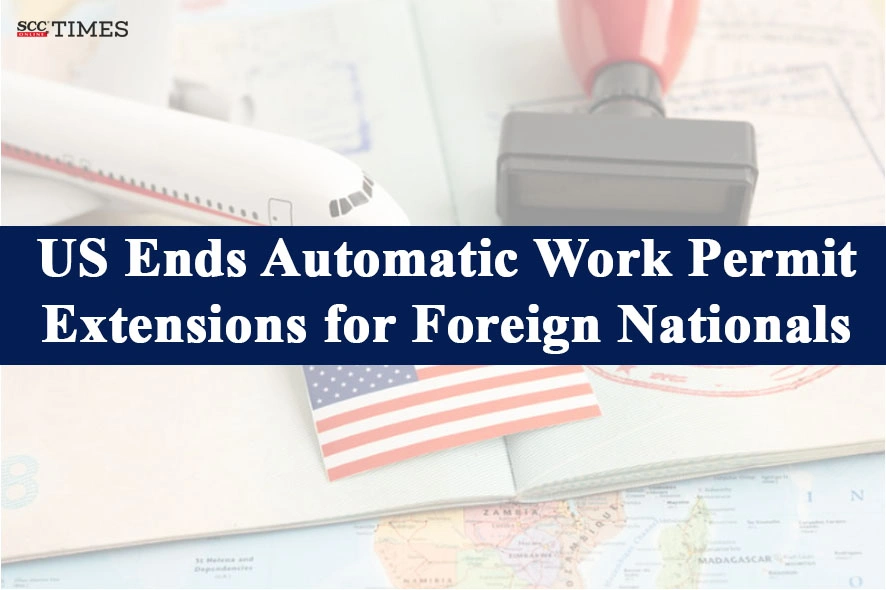On 29-10-2025, the U.S. Department of Homeland Security (‘DHS’) officially announced the end of automatic extensions for Employment Authorization Documents (‘EAD’) for foreign nationals who file renewal applications.
The new rule took effect from 30-10-2025.
What’s EADs?1
EADs commonly known as work permits, are official cards issued by U.S. Citizenship and Immigration Services (‘USCIS) that allow certain non-citizens to legally work in the United States. They are granted to individuals with pending immigration cases, Temporary Protected Status (‘TPS’), asylum seekers, or spouses of visa holders. An EAD includes the holder’s photo, validity dates, and authorization category. Without a valid EAD, foreign nationals cannot be employed in the U.S. Renewal is required before expiration to maintain work eligibility.
What was the Rule Earlier?
Previously, eligible immigrants who submitted timely EAD renewal applications were allowed to continue working for up to 540 days while their applications were pending. This automatic extension served as a critical safeguard for thousands of workers, particularly in high-demand sectors such as healthcare, technology, and education.
What’s Changed?2
Under the new rule, DHS has discontinued automatic extensions of EADs for renewal applicants in most categories. Foreign nationals, who file to renew their EADs on or after 30-10-2025 will no longer receive an automatic extension while their application is pending. Key changes include:
-
No More Automatic Extensions: Work authorization will lapse unless the renewal is approved before the current EAD expires.
-
Mandatory Vetting: Renewals now require full background checks before employment authorization is granted.
-
Limited Exceptions: Certain categories, such as TPS holders, may still qualify for extensions through legal provisions or Federal Register notices.
This policy shift results in more frequent vetting of applicants, allowing USCIS to better detect fraud and identify individuals who may pose a threat to public safety.
What’s the Rationale?
According to DHS, the change aims to deter fraud and identify individuals who can be a threat.
USCIS Director Joseph Edlow stated:
“USCIS is placing a renewed emphasis on robust alien screening and vetting, eliminating policies the former administration implemented that prioritized aliens’ convenience ahead of Americans’ safety and security,”
“Working in the United States is a privilege, not a right.”
The rule is designed to ensure that employment authorization is granted only after thorough screening, reducing the risk of potentially harmful individuals continuing employment without proper vetting.
What Migrants Should Do?
Migrants who file EAD renewal applications on or after 30-10-2025 will not receive automatic extensions. USCIS recommends:
-
File early: Submit renewal applications up to 180 days before expiration to avoid gaps in work authorization.
-
Past extensions unaffected: EADs automatically extended before 30-10-2025 will not be impacted by this rule.
1. Employment Authorization Document (Form I-766/EAD) | USCIS
2. DHS Ends Automatic Extension of Employment Authorization | USCIS


